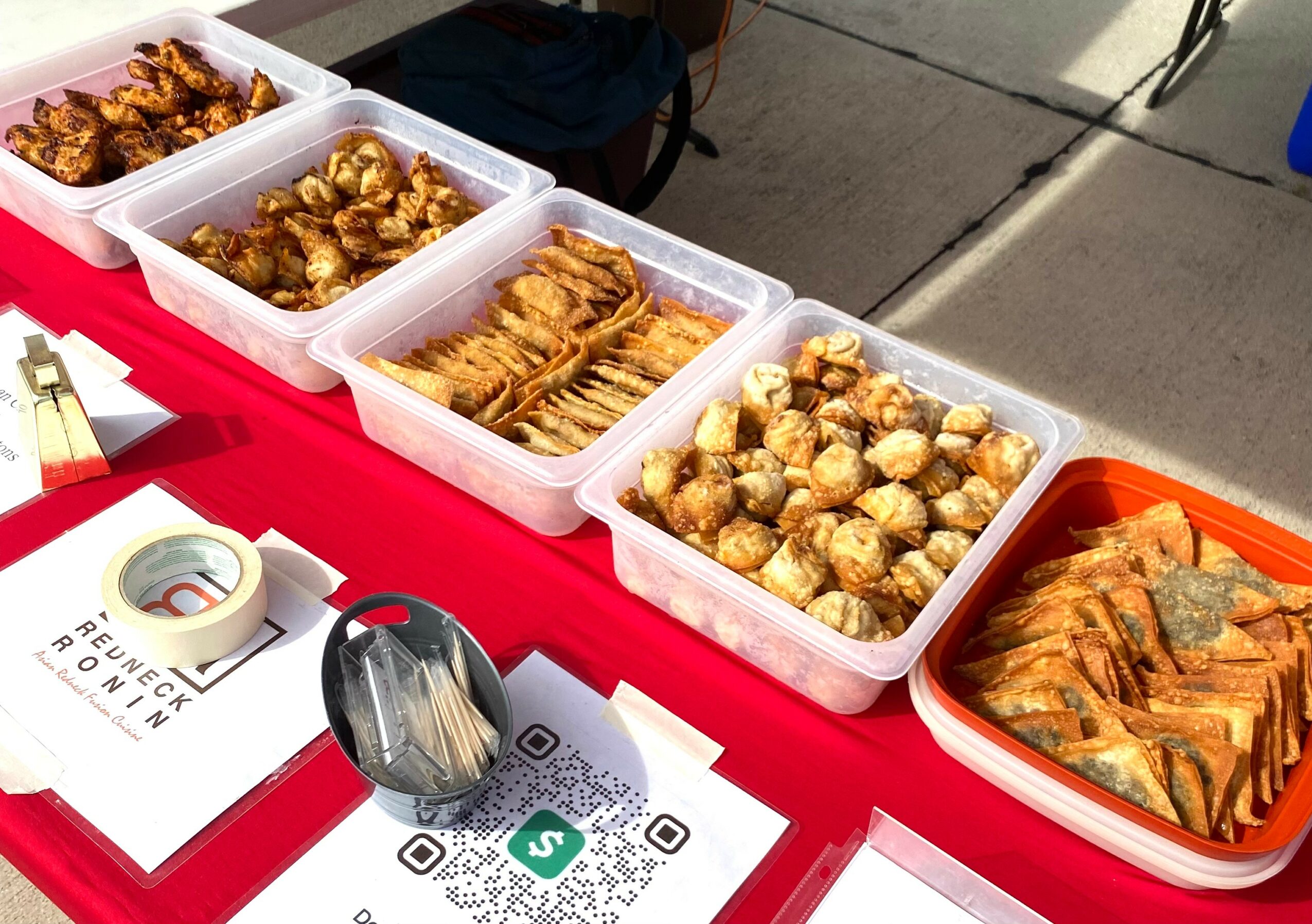 Today we’d like to introduce you to Deron Kawamoto.
Today we’d like to introduce you to Deron Kawamoto.
Hi Deron, so excited to have you on the platform. So before we get into questions about your work life, maybe you can bring our readers up to speed on your story and how you got to where you are today.
I have prepared food since I was tall enough to see over the kitchen table. Mom and Grandma would prepare wontons by the hundreds for family gatherings and we, the kids helped with the folding. Family events in Hawaii tend to be large parties.
Later, I learned to cook many Hawaii Asian dishes to eat my favorite foods whenever I wanted. My family moved to Texas when I was in high school, opening up new culinary vistas. Tex-Mex, Barbecue, and Cajun were the regional styles that impressed me the most, and I decided to learn about them as well. In college, my roommates and neighbors made a deal: I cooked and they paid for the ingredients. It worked out well for everyone.
As an adult, work kept me busy and I only cooked occasionally. Upon retirement, I began cooking regularly for my family. My nieces loved the food so much that they encouraged me to open a restaurant. I decided to focus on catering, festivals, and farmer’s markets to build a client base. I combined the Asian Fusion of Hawaii with Texas Southern Country style. I have dubbed it Asian-Redneck Fusion and the public seems to enjoy both the food and the cheeky moniker.
Can you talk to us a bit about the challenges and lessons you’ve learned along the way? Looking back would you say it’s been easy or smooth in retrospect?
Smooth is not the word I would use. Our biggest issues have been bureaucracy and Covid. I launched my business in 2019 and had good initial success with catering. You know what came next. Within months, the catering market evaporated; no one wanted to sponsor large gatherings of people, much fewer group meals.
I switched focus to open-air markets, which largely remained open. By spreading out the booths, farmer’s markets could naturally social distance. This was a success but a setback at the time since we had to build a whole new customer base from scratch. Many of the festivals and food fairs canceled due to Covid are starting to open again.
The relationships we built at the farmer’s markets over the last two years have earned us invitations to these larger events. It’s a good lesson: an opportunity may seem small but it’s also a chance to prove yourself worthy of greater things. Do your best even when it seems no one is looking. Someone might notice and you will always know.
Covid is largely behind us but the paperwork is a constant for small businesses. The biggest challenge for us is the fragmented health bureaucracy. Health inspection to protect the public is necessary for the food business. The difficulty arises from so many local government entities having their health department with their own rules.
Entrepreneurs only have the time to fill out so many forms and learn so many rulebooks: in my case about ten. Our business has had to pass on some great opportunities because we didn’t have the resources to deal with another set of regulations. Allocating resources between regulatory compliance and business operations is a constant balancing act for small firms in the food business.
Appreciate you sharing that. What should we know about Redneck Ronin?
Redneck Ronin combines culinary influences from Hawaii and Texas to create something new, which I call Asian-Redneck Fusion. Our signature dishes are Brisket Wonton and Korean Fried Chicken. I dare anyone to tell me that fried chicken and brisket are not Redneck food. Our sides include both Mac salad and slaw, staples of any Texas picnic.
But our Mac salad is Hawaiian – my grandmother’s recipe and the slaw uses either an Asian sesame vinaigrette or kimchi dressing. My latest creation is called a KalBel: Korean BBQ ribeye known as Kalbi, Portobello Mushrooms, sautéed garlic, and spinach. This is all packaged into a wonton to create a perfect bite. The KalBel is a result of my wife’s request for a steak wonton.
I’m smart enough to give her what she asks for but mischievous enough to give it in a way she’s not expecting. So I combined a Korean BBQ beef concept with sides from an American steak dinner. This is how fusion is supposed to work. She loved it so much, she said we had to sell it. This example illustrates the bold creativity of Redneck Ronin.
Redneck Ronin and the related Asian Redneck Fusion are unforgettable brands. We often have people ask to take selfies with our signs. Asian-Redneck Fusion combines two wildly disparate ideas in a way that makes people curious and brings a smile to their faces. Yet it is also accurate if the mischievous description of our food.
I put many hours of thought into the Redneck Ronin name as well. First, the alliteration helps people to remember the name, something the late Stan Lee knew well. Second, the name conveys the Southern and Asian influences that go into our cuisine. Third, Ronin is a specific allusion to my Japanese ancestry.
Each word also describes elements of my family history and our business. A Ronin is a wandering, masterless samurai. Our business has no fixed location, so I’m wandering. I am self-employed, so I am masterless. Redneck also references my family history. I can honestly say that my ancestors were poor farmers from the Deep South… of Japan.
What does success mean to you?
Success is making customers happy while building a profitable and growing business. Our food is tasty and unique so making customers happy is the easy part – relatively speaking. Profitability is always a challenge and we now face the additional complication of rising inflation. Customers are resistant to price increases but our costs have gone up very quickly.
Contact Info:
- Website: redneck-ronin.com
- Facebook: https://www.facebook.com/asianredneckfusion/











